(Dissident) Sexualities in the Time of Cholera
LGTBIQ+ 2021 Programme
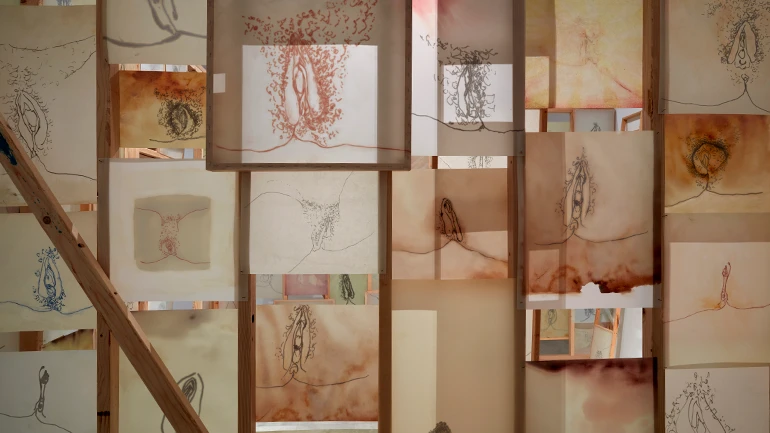
Held on 22 Jun 2021
The world’s dislocated spaces have now become part of these strange pandemic times. A turbulent present situates us before paradoxical situations and hard-to-resolve conjunctures following progress rationales that formerly were beyond dispute to those looking on from the bien-pensant North. Morocco and Spain, and Africa and Europe are contemporarily traversed by the subjectivation processes of a huge power shaping new social imaginaries, new narrations and new poetics.
Forms of sexual dissidence have always inhabited dislocated spaces and strange times, yet they still connect life paths in seemingly diverse places and temporalities. The programme through which the Museo Reina Sofía contributes to LGTBIQ+ 2021 Pride seeks to address the violence, complexities and contradictions of the present by hearing multiple voices and acting as a platform and speaker for bodies in struggles.
Curator
Jesús Carrillo
Organised by
Museo Reina Sofía
-
Tuesday, 22 June 2021 Online platform
Transfeminist Exhortations
The Situated Thought Collection
Online platformThe Chair of Situated Thought is an itinerant programme curated by Ileana Diéguez and Ana Longoni, and co-organised by the Metropolitan Autonomous University (Cuajimalpa Campus, Mexico) and Museo Reina Sofía. The first edition of the Chair, in 2019, gave rise to the Situated Thought Collection, an editorial project resulting from a collaboration between the aforementioned institutions and the publishing house Ediciones DocumentA/Escénicas. This encounter sets out the first issue of the collection devoted to current debates around transfeminisms.
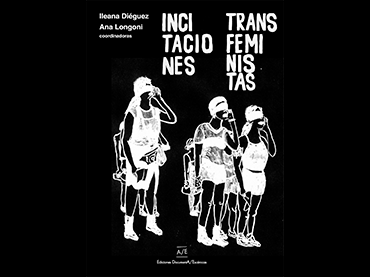
-
Saturday, 26 June 2021 Sabatini Building, Garden
Eddi Circa + Cruhda in Concert
TicketsFor this concert in the Museo Reina Sofía Garden, artists Eddi Circa and Cruhda revisit some of their tracks, constructing them as reverberations of present-day violence, complexities and contradictions.
Curator: José Luis Espejo
Sponsored by: Estrella Damm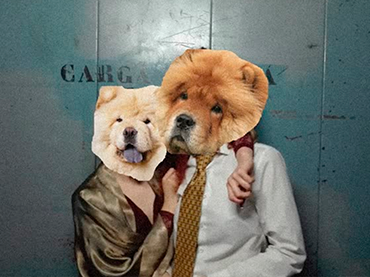
-
Wednesday, 30 June 2021 Nouvel Building, Auditorium 200
Queer vadis?
Gender-Sexual Dissidence in the Contemporary Conjuncture
TicketsNew trans* feminism, anti-colonial and non-binary struggles, incorporated by different bodies and generations, have resignified the meaning of queer. This round-table discussion plays host to different voices discussing the dilemmas faced by contemporary gender-sexual dissidence.
Participants: Elizabeth Duval, Víctor Mora, Esther (Mayoko) Ortega and Coco Wiener
Moderated by: Jesús Carrillo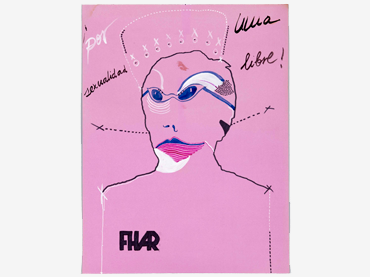
-
Thursday, 1 July 2021 Nouvel Building, Auditorium 200
Love Is Not a Crime
Online platformEn este encuentro, la escritora Najat El Hachmi, la ilustradora feminista Zainab Fasiki y el escritor Abdellah Taïa debaten a raíz de las cada vez más frecuentes acciones reivindicativas en torno a los derechos sexuales, tanto en el ámbito íntimo como en la esfera pública.
Participantes: Najat El Hachmi, Zainab Fasiki y Abdellah Taïa
Modera: Susana Moliner (Grigri Projects)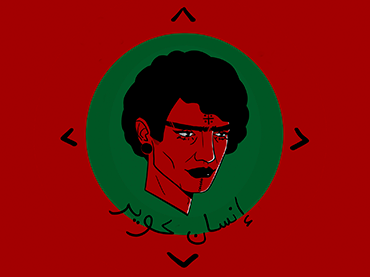
-
Thursday 2, Friday, 3 and Saturday, 4 September 2021 Sabatini Building, Workshops
Artivism and the Female Body
Fanzine Workshop with Zainab Fasiki
At the confluence of art and activism, this workshop looks to cast a critical gaze on the representation of bodies, sexuality and gender in a clear confrontation with restrictions imposed by society, laws and religions. Over the course of three three-hour sessions in the company of illustrator and activist Zainab Fasiki, participants will collectively produce a fanzine.
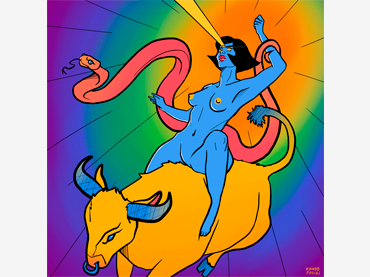
-
Pink Triangle, LGTBIQ+ Activisms in Schools
Dialogues
Watch videoIn this video, activist and socialist Miguel Missé and lecturer and educator Mercedes Sánchez Sáinz engage in a conversation centred around the situation of different expressions of sex-gender in schools and analyse underlying structures of violence, which frequently surface, in school institutions. The debate brings together the voices of people involved in the education project Triángulo Rosa (Pink Triangle).
This work is framed inside the Our Many Europes project.
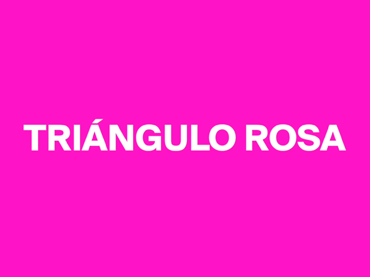
Más actividades

Aesthetics of Peace and Desertion Tactics
8 October 2025 – 24 June 2026
The study group Aesthetics of Peace and Tactics of Desertion: Prefiguring New Pacifisms and Forms of Transitional Justice proposes a rethinking—through both a theoretical-critical and historical-artistic lens—of the intricate network of concepts and practices operating under the notion of pacifism. A term not without contestation and critical tension, pacifism gathers under its name a multiplicity of practices—from anti-militarism and anti-war movements to non-violence activism—while simultaneously opening urgent debates around violence, justice, reparation, and desertion. Here, pacifism is not conceived as a moral doctrine, but as an active form of ethical and political resistance capable of generating aesthetic languages and new positions of social imagination.
Through collective study, the group seeks to update critical debates surrounding the use of violence and non-violence, as well as to explore the conflict of their representation at the core of visual cultures. In a present marked by rearmament, war, genocide, and the collapse of the social contract, this group aims to equip itself with tools to, on one hand, map genealogies and aesthetics of peace—within and beyond the Spanish context—and, on the other, analyze strategies of pacification that have served to neutralize the critical power of peace struggles. Transitional and anti-punitive justice proposals will also be addressed, alongside their intersections with artistic, visual, and cinematic practices. This includes examining historical examples of tribunals and paralegal activisms initiated by artists, and projects where gestures, imaginaries, and vocabularies tied to justice, reparation, memory, and mourning are developed.
It is also crucial to note that the study programme is grounded in ongoing reflection around tactics and concepts drawn, among others, from contemporary and radical Black thought—such as flight, exodus, abolitionism, desertion, and refusal. In other words, strategies and ideas that articulate ways of withdrawing from the mandates of institutions or violent paradigms that must be abandoned or dismantled. From feminist, internationalist, and decolonial perspectives, these concepts have nourished cultural coalitions and positions whose recovery today is urgent in order to prefigure a new pacifism: generative, transformative, and radical.
Aesthetics of Peace and Tactics of Desertion, developed and led by the Museo Reina Sofía’s Studies Management, unfolds through biweekly sessions from October to June. These sessions alternate between theoretical discussions, screenings, work with artworks and archival materials from the Museo’s Collection, reading workshops, and public sessions. The group is structured around sustained methodologies of study, close reading, and collective discussion of thinkers such as Judith Butler, Elsa Dorlin, Juan Albarrán, Rita Segato, Sven Lütticken, Ruth Wilson Gilmore, and Franco “Bifo” Berardi; historical episodes such as the anti-nuclear and anti-arms race movement in Spain; and the work of artists and activists including Rojava Film Commune, Manuel Correa and the Oficina de Investigación Documental (Office for Documentary Investigation), and Jonas Staal, among other initial cases that will expand as the group progresses.

Institutional Decentralisation
Thursday, 21 May 2026 – 5:30pm
This series is organised by equipoMotor, a group of teenagers, young people and older people who have participated in the Museo Reina Sofía’s previous community education projects, and is structured around four themed blocks that pivot on the monstrous.
This fourth and final session centres on films that take the museum away from its axis and make it gaze from the edges. Pieces that work with that which is normally left out: peripheral territories, unpolished aesthetics, clumsy gestures full of intent. Instead of possessing an institutional lustre, here they are rough, precarious and strange in appearance, legitimate forms of making and showing culture. The idea is to think about what happens when central authority is displaced, when the ugly and the uncomfortable are not hidden, when they are recognised as part of the commons. Film that does not seek to be to one’s liking, but to open space and allow other ways of seeing and inhabiting the museum to enter stage.

Intergenerationality
Thursday, 9 April 2026 – 5:30pm
This series is organised by equipoMotor, a group of teenagers, young people and older people who have participated in the Museo Reina Sofía’s previous community education projects, and is structured around four themed blocks that pivot on the monstrous.
The third session gazes at film as a place from which to dismantle the idea of one sole history and one sole time. From a decolonial and queer perspective, it explores films which break the straight line of past-present-future, which mix memories, slow progress and leave space for rhythms which customarily make no room for official accounts. Here the images open cracks through which bodies, voices and affects appear, disrupting archive and questioning who narrates, and from where and for whom. The proposal is at once simple and ambitious: use film to imagine other modes of remembering, belonging and projecting futures we have not yet been able to live.

Remedios Zafra
Thursday March 19, 2026 - 19:00 h
The José Luis Brea Chair, dedicated to reflecting on the image and the epistemology of visuality in contemporary culture, opens its program with an inaugural lecture by essayist and thinker Remedios Zafra.
“That the contemporary antifeminist upsurge is constructed as an anti-intellectual drive is no coincidence; the two feed into one another. To advance a reactionary discourse that defends inequality, it is necessary to challenge gender studies and gender-equality policies, but also to devalue the very foundations of knowledge in which these have been most intensely developed over recent decades—while also undermining their institutional support: universities, art and research centers, and academic culture.
Feminism has been deeply linked to the affirmation of the most committed humanist thought. Periods of enlightenment and moments of transition toward more just social forms—sustained by education—have been when feminist demands have emerged most strongly. Awareness and achievements in equality increase when education plays a leading social role; thus, devaluing intellectual work also contributes to harming feminism, and vice versa, insofar as the bond between knowledge and feminism is not only conceptual and historical, but also intimate and political.
Today, antifeminism is used globally as the symbolic adhesive of far-right movements, in parallel with the devaluation of forms of knowledge emerging from the university and from science—mistreated by hoaxes and disinformation on social networks and through the spectacularization of life mediated by screens. These are consequences bound up with the primacy of a scopic value that for some time has been denigrating thought and positioning what is most seen as what is most valuable within the normalized mediation of technology. This inertia coexists with techno-libertarian proclamations that reactivate a patriarchy that uses the resentment of many men as a seductive and cohesive force to preserve and inflame privileges in the new world as techno-scenario.
This lecture will address this epochal context, delving into the synchronicity of these upsurges through an additional parallel between forms of patriarchal domination and techno-labor domination. A parallel in which feminism and intellectual work are both being harmed, while also sending signals that in both lie emancipatory responses to today’s reactionary turns and the neutralization of critique. This consonance would also speak to how the perverse patriarchal basis that turns women into sustainers of their own subordination finds its equivalent in the encouraged self-exploitation of cultural workers; in the legitimation of affective capital and symbolic capital as sufficient forms of payment; in the blurring of boundaries between life and work and in domestic isolation; or in the pressure to please and comply as an extended patriarchal form—today linked to the feigned enthusiasm of precarious workers, but also to technological adulation. In response to possible resistance and intellectual action, patriarchy has associated feminists with a future foretold as unhappy for them, equating “thought and consciousness” with unhappiness—where these have in fact been (and continue to be) levers of autonomy and emancipation.”
— Remedios Zafra

27th Contemporary Art Conservation Conference
Wednesday, 4, and Thursday, 5 March 2026
The 27th Contemporary Art Conservation Conference, organised by the Museo Reina Sofía’s Department of Conservation and Restoration, with the sponsorship of the Mapfre Foundation, is held on 4 and 5 March 2026. This international encounter sets out to share and debate experience and research, open new channels of study and reflect on conservation and the professional practice of restorers.
This edition will be held with in-person and online attendance formats, occurring simultaneously, via twenty-minute interventions followed by a five-minute Q&A.